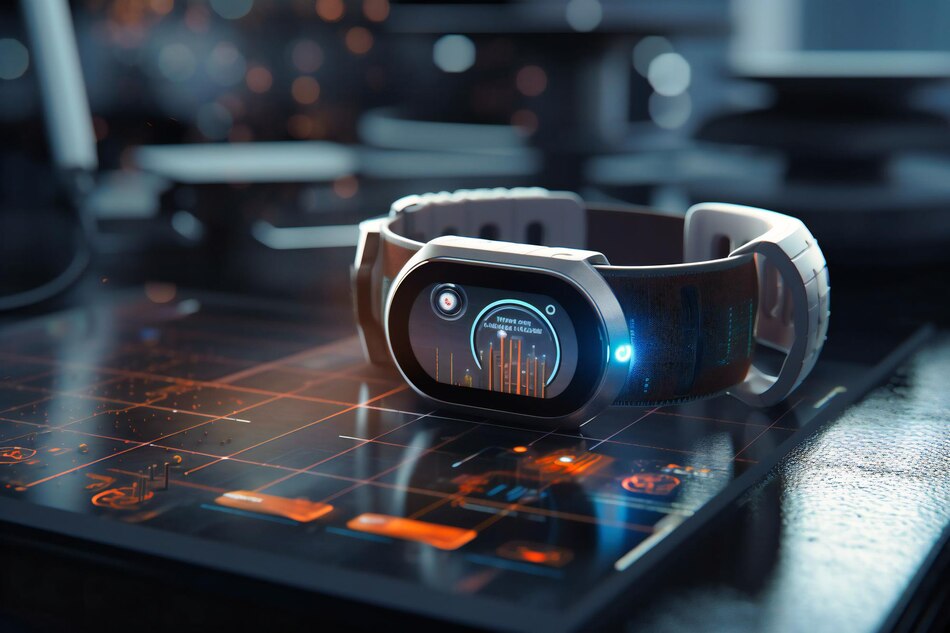Smart technology and artificial intelligence (AI) are working hand-in-hand to usher in a new era of healthcare. This groundbreaking relationship is changing the way healthcare is delivered and generating unexpected new ideas. Smart technology and AI will become more prevalent in our daily lives.
This will change the future of health tracking, enabling continuous monitoring, early disease detection, and better online patient care. In an ever-changing world, combining AI and smart technology is the key to realizing major changes that will heal the planet.
The Rise of Wearable Health Devices
Wearable health devices have come a long way from their humble beginnings as simple pedometers. Smartphones, exercise apps, and wellness tools play an important role every day. Those who use them can learn valuable information about their health and become more health conscious.
People used to think that these tools could only be used for exercise, but now they have many other uses as well. Wearables can help with many health issues, such as tracking heart rate and sleep using GPS. Wearable glucose monitors allow diabetics to be monitored in real-time, while heart patients can benefit by having their ECGs tracked all the time. Now, gadgets can help people get healthy in many ways.
The coolest thing about modern gadgets is how easy they are to use on a daily basis. These tools used to be only for people who like to exercise, but now they can also help sick people in different ways. Not only do they keep track of exercise, but they also provide detailed information about many health issues. As technology advances, gadgets will become more and more functional and can provide various health indicators and diagnostic tools.
How Artificial Intelligence Can Improve Health Monitoring
Smart technology worn on the body and computer programs known as artificial intelligence work in tandem to make tracking health conditions more useful. Artificial intelligence has to deal with large amounts of data generated by smart technology. These tools keep track of your health, including how much you exercise and how long you sleep. Artificial intelligence programs look at this massive amount of data and spot trends and outliers that a person might miss.
Artificial intelligence is crucial for tracking health using tools because it can spot irregularities. Artificial intelligence can alter vital signs and give people an idea of possible health problems. If a device notices a sudden and bizarre rise in a person’s heart rate while they are sleeping, it could mean that the person has an arrhythmia or sleep disorder and needs to see a doctor. This practical method of tracking health conditions can help detect problems early and improve health.
Artificial Intelligence can alter health data, which is a great advantage beyond spotting oddities. Artificial intelligence can understand people’s unique patterns and habits and provide health tips. Based on these unique insights, users can make informed decisions about their health. For example, they can change their exercise goals, sleep better, or improve their diet.
Early Disease Detection and Disease Prevention
The fact that things with artificial intelligence capabilities can help people avoid and detect diseases early is one of the most incredible things about them. These tools continuously monitor various health factors to help people detect health risks early. With smart health technology, it is possible to detect early signs of possible heart problems such as high blood pressure or uneven heartbeat, which demonstrates its effectiveness.
This approach can really improve people’s health. For example, wearable technology with artificial intelligence can help control long-term problems. Continuously tracking blood sugar and getting real-time information and messages can help people with diabetes.
Also, people prone to seizures can use technology to get help and signs. Artificial intelligence and smart technology make it easier to treat diseases and improve the lives of people with long-term conditions. As AI advances, smart technology will be important for public health.
They can monitor diseases and act quickly because they can memorize basic signs and symptoms. Wearable AI devices can provide valuable data for monitoring and controlling infectious diseases, which would be a smart way to deal with public health issues.
Remote patient monitoring
When AI and smart technologies come together, they usher in a new era of online patient tracking that changes the way healthcare is delivered. This unique idea is crucial today as people are living longer and suffering from more long-term illnesses. With online patient tracking systems, doctors and nurses can monitor the health of their patients without having to visit them often.
People suffering from long-term conditions such as diabetes or high blood pressure can track their health through wearable technology controlled by artificial intelligence. The data collected by these gadgets is securely sent to healthcare professionals so they can keep an eye on the patient’s progress and act quickly when needed. This not only reduces overcrowding in healthcare facilities but also gives people greater control over their health.
In a public health event like the spread of COVID-19, it is even more important to utilize the Internet to track patients. Wearable devices with built-in artificial intelligence can monitor vital signs and spot early signs of disease, helping doctors identify possible cases more quickly. This skill is critical to ensure that help is provided to people quickly and to stop the spread of dangerous diseases.
Conclusion.
Wearables powered by artificial intelligence are at the center of major changes in healthcare that will make everyone healthier. These tools can monitor health at any time, prevent problems before they occur, and improve online care for patients. As these tools improve, they will have a huge impact on the health of people and the public.
To ensure that people have control over their health data, a good balance must be found between new ideas and privacy protection. Artificial intelligence and smart technologies are changing the world. They are making personalized and preventive healthcare the norm.
